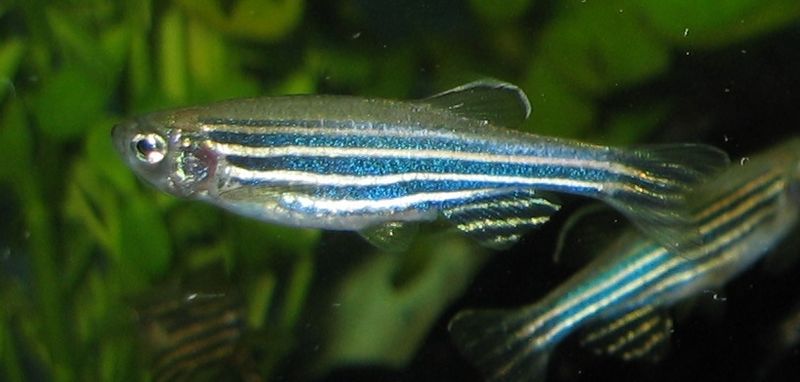Custom gene editing rewrites zebrafish DNA
September 24, 2012

Zebrafish are common model organisms in genetic research. Now their genomes can be custom edited. (Credit: Azul/Wikimedia Commons)
Researchers led by Stephen Ekker, a molecular biologist at the Mayo Clinic in Rochester, Minnesota, have for the first time made custom changes to parts of the zebrafish (Danio rerio) genome, using artificial enzymes to cut portions of DNA out of targeted positions in a gene sequence, and replace them with synthetic DNA, Nature News reports.
One of the sequences that Ekker and his colleagues inserted into the zebrafish DNA was one that allows genes to be switched on and off.
This could enable researchers to examine the effects of a gene both during early development, by turning the mutation on immediately, or later in life, by turning it on when the fish reaches maturity. It is not usually possible to examine the effects of gene alteration in later life, because fish with deliberately mutated genes that affect development often do not survive into adulthood.
The work “opens up the possibility to do many great experiments using zebrafish,” says Jason Rihel, a developmental biologist who works with zebrafish at University College London. “The ability to directly rewrite native genetic sequences would give us the precise control of genes needed to refine zebrafish models of complex diseases.” Such models could be used to probe “the behavioral functions of specific brain neurons, or to tease apart the network of signals that orchestrate vertebrate development.”
By contrast, Rihel sees potential for the TALEN technique in humans: “We could potentially use targeted DNA editing in the retina to repair a human blindness gene, for example.”